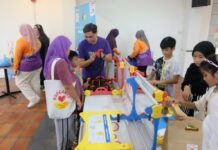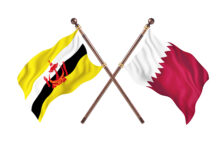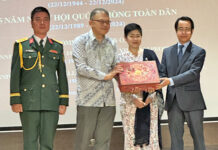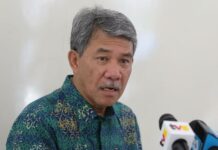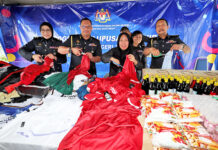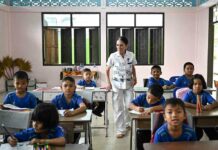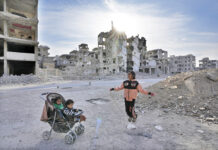Azlan Othman
“The question for us in ASEAN is: Have we learnt the lessons from COVID-19? Are we, in fact, better prepared to deal with these situations than we once were? If we fail to prepare, then we prepare to fail,” said Acting Deputy Permanent Secretary (Policy) at the Ministry of Health (MoH) Dr Hajah Anie Haryani binti Haji Abdul Rahman.
She posed these questions at the 12th ASEAN Plus Three Field Epidemiology Training Network (ASEAN+3 FETN) Steering Committee Meeting and Related Meetings at The Empire Brunei yesterday.
Dr Hajah Anie Haryani said the meeting was the first in-person FETN meeting since the start of the COVID-19 pandemic.
“We have seen first-hand the devastation (COVID-19) brought to our communities, both from a health and a socio-economic perspective. Infectious disease threats continue to pose such risks,” she said.
“In addition to COVID-19, over the past decade, the ASEAN region experienced outbreaks of avian influenza in humans, MERS, Zika, and a range of other emerging infectious diseases.
“Our economic diversification activities ensured that the movement of people and goods have been dramatically increasing over the last few years, thus heightening the risk of importation of an emerging infectious disease. Increasing agricultural activity means that we now have to be more concerned of diseases with a zoonotic origin.

“Related to the human-animal interface, antimicrobial resistance is also a serious health security issue. Climate change is not only increasing the impact of natural disasters, it is altering the geographic reach of epidemic-prone diseases like the Zika virus,” she added.
Dr Hajah Anie Haryani continued, “What does this mean for us in ASEAN? Simply, it means that we need to be even more prepared and use available technologies at our disposal. It is, therefore, timely that the theme for this meeting is ‘Leveraging Digital Technology to Strengthen Field Epidemiology’.
“Integral to many of our COVID-19 responses was the use of digital technology. The unique challenges generated by the pandemic created new needs and abruptly changed the motivation to make use of digital health.
“In many instances, digital health tools went from being seen as an interesting potential opportunity to an immediate necessity providing the impetus for very rapid development and uptake in practice.”
Meanwhile, the MoH said the ASEAN+3 FETN was established in 2011 following the outcome of the 4th ASEAN+3 Health Ministers Meeting which expressed support to further the development of networking among field epidemiology training (FET) programmes in the ASEAN+3 countries to heighten vigilance, preparedness, capacity, communication and collaboration.
The ASEAN+3 FETN Steering Committee, comprising representatives of 13 countries, provides strategic oversight and direction in ensuring that the network can deliver on its objectives to provide support to strengthen FET capacity at the national level, facilitate cooperation and collaboration among members and functions as a platform for knowledge and experience sharing, training, and regional capacity building.
The meeting discussed lessons learnt from COVID-19 and how the region can carry the lessons forward in evaluating and implementing regional health cooperation for strengthening FET.
The meeting’s theme provides a platform for discussion on the area of public health practice.
In particular, countries will share best practices on their use of digital health technology in four principal areas: communication and information; monitoring and surveillance; supporting provision of health services; and vaccination.
The technical agenda of the steering committee meeting is covered through discussions on leveraging digital technology to strengthen field epidemiology in the 2nd ASEAN Digital Public Health (DPH) Conference, which is held concurrently with the steering committee meeting, and hosted by Brunei’s MoH and Ministry of Finance and Economy.
The ASEAN+3 Steering Committee meeting also includes an inter-network meeting of Indo-Pacific FETPs between the ASEAN+3 FETN, Southeast Asia Field Epidemiology and Technology Network (SAFETYNET), and Training Programmes in Epidemiology and Public Health Interventions Network (TEPHINET).
The Joint Indo-Pacific FETP Networks meeting discussed the landscape analysis of field epidemiology networks in the region, and identify needs, strengths, synergies, and consider potential opportunities for alignment and collaboration.
The meeting was attended by delegates from ASEAN member states, delegates from Plus Three countries (China, Japan and Korea), the ASEAN Secretariat, the FETN Coordinating Office and ASEAN+3 FETN dialogue partners.

